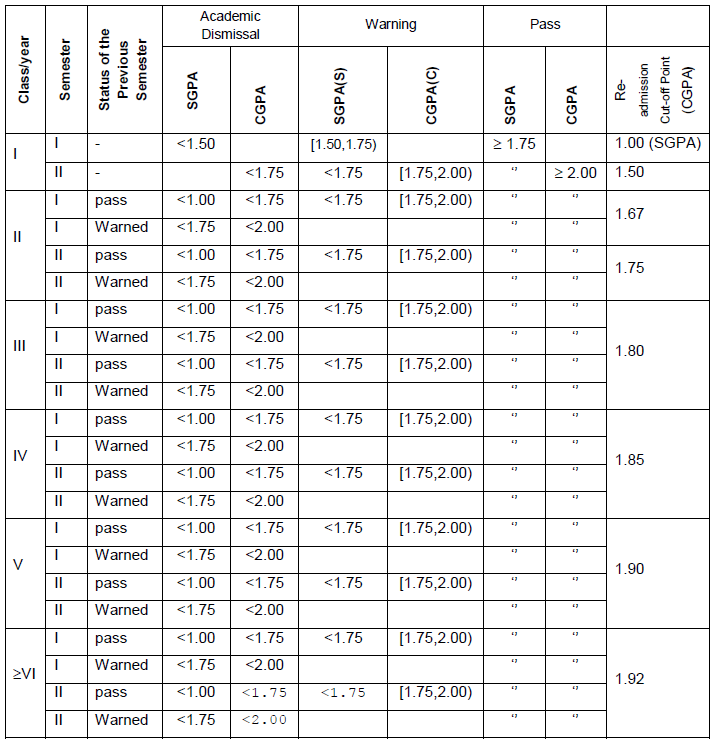Graduation requirements for:
Undergraduate Students
- All the required courses/modules and the minimum credit hours set by the respective Academic Unit should be satisfied, except to phase in and phase out program.
- A Cumulative Grade Point Average/CANG (CGPA) of 2.00 must be obtained;
- No "F" grade in any course/module taken for undergraduate program
Graduate Students
- To complete a program and graduate, a candidate must obtain a minimum of CGPA of 3.00.
- A master’s student is allowed to graduate with a minimum CGPA of 3.00 and only one “C”. Students having two “C+” grades shall also be allowed to graduate as long as their CGPA is not below 3.00.
- For PhD students all courses with “C” grades or lower shall be repeated.
- Normally a PhD graduate is expected to publish three articles in peer reviewed journal from the result of the thesis work. However, no PhD candidate shall graduate without publishing at least one article in peer reviewed journal.

